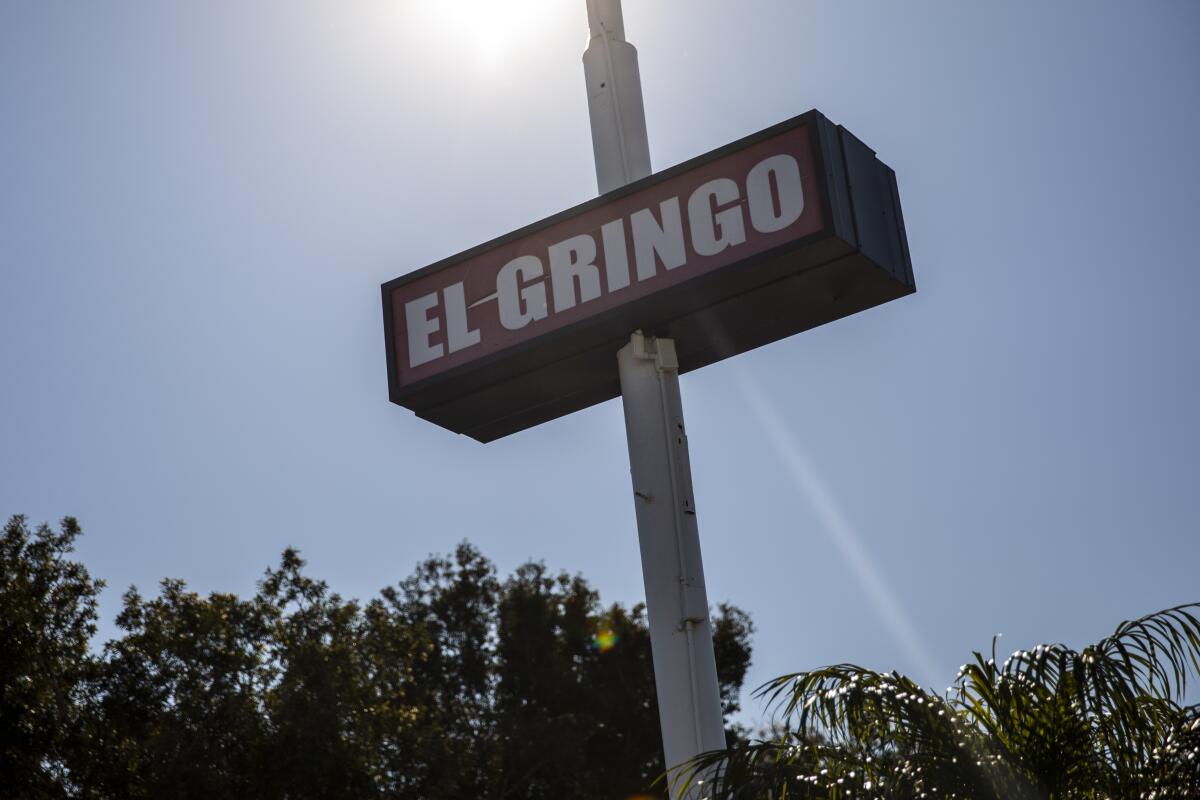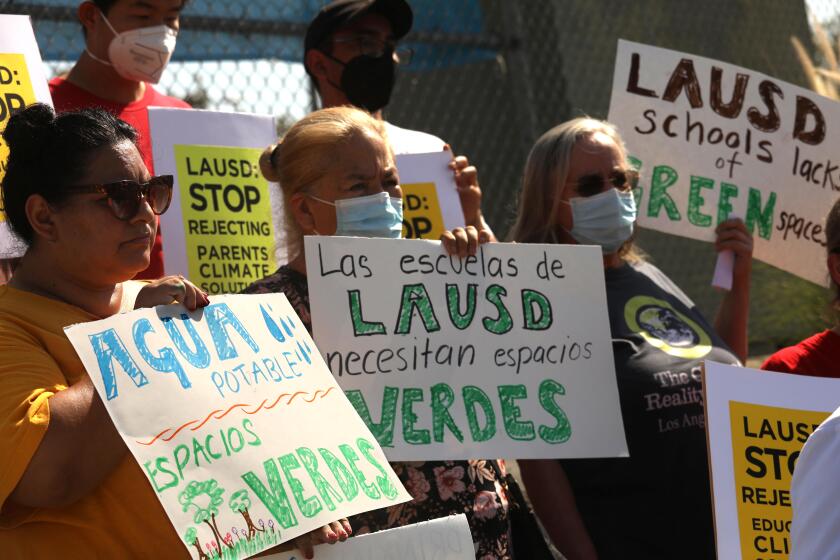Letters to the Editor: Is ‘gringo’ offensive? That’s up to the person being called one

- Share via
To the editor: Deep in Gustavo Arellano’s column, he defines “gringo” as “a state of mind more than it is a race — a philosophy that loathes Mexican anything.”
I, an abuela-aged woman of Northern European ancestry, have lived within 50 miles of the Mexican border most of my life. Mexican culture is part of my life as much as any of my DNA cultures, if not more, and I love it all.
But given Arellano’s definition, I guess I now need to take offense should I be called a gringa, whether the tone is playful or not.
Racial slurs are designed to hurt, and they do. They give the message that you aren’t a part of my club, and you never will be, no matter how fine a person you are. It would be best if we all just quit using them.
Diane Scholfield, Vista
..
To the editor: Arellano once again hits the nail on the proverbial head with his usual sense of humor intact.
I applaud The Times for giving him a platform to speak truth to power, and I applaud him for the history lesson, for saying in plain language what the gringos prefer to be hidden, that “there’s nothing worse in the gringo world than being a Mexican.”
As a gringa, married 40 years to a Mexicano, I treasure this rich cultural heritage and continually learn new ways to appreciate it. I can only imagine the hate mail that will result from Gustavo’s powerful words, but I for one say gracias.
Michele Harris-Padron, Santa Barbara
..
To the editor: Arellano writing that something is not offensive doesn’t make it so.
Judging by what Arellano wrote, Chula Vista City Councilman John McCann was offended when Mayor Mary Casillas Salas jokingly called him a gringo. Many people who are called the term are offended. Most dictionaries state that the word is derogatory or a slur.
Even Arellano admits that it’s a slur, though dismisses this as “technically” so, and by the end of his piece he seems to use the word in a way that is less than friendly.
Who gets to decide what is offensive? The person who offends? The person who is offended? Everybody? Nobody?
Peter O’Neil, Burbank




